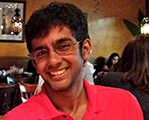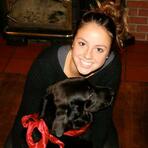core staff
Virginia Sturm, Ph.D.
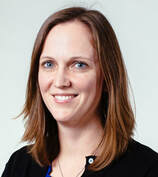
Dr. Sturm is the director of the CPB and an an Associate Professor and neuropsychologist at the UCSF Memory and Aging Center in the Department of Neurology. She is associate director of the CPB and the director of the Clinical Affective Neuroscience Lab (CAN Lab), an affiliate of the CPB. After undergraduate work at Georgetown University, she received her Ph.D. in clinical psychology at the University of California, Berkeley and subsequently completed her clinical internship and postdoctoral fellowship at UCSF. Her research focuses on identifying the neural systems that support emotion and social behavior and how these systems break down in neurodegenerative disease.
Howard Rosen, M.D.

Dr. Rosen is an Associate Professor at the UCSF Memory and Aging Center in the Department of Neurology. After receiving his M.D. from Boston University School of Medicine, he trained in internal medicine at the Albert Einstein College of Medicine in New York and completed his residency at UCSF. Dr. Rosen pursued fellowship training in brain imaging at the Washington University School of Medicine and then returned to UCSF to join the Memory and Aging Center in 1999. His primary area of interest is in the organization of emotional systems in the brain and how these systems are affected in different forms of neurodegenerative disease.
David Perry, M.D.

Dr. Perry is an Associate Professor at the UCSF Memory and Aging Center in the Department of Neurology. He graduated from medical school at Georgetown University in Washington, DC. He completed an internship in internal medicine and residency in neurology at the Mayo Clinic in Rochester, Minnesota where he also researched obsessive-compulsive features in dementia. He is Assistant Professor and neurologist at the Memory and Aging Center and participates in the evaluation and treatment of patients in the MAC clinic. His current area of research interest is the impact of neurodegenerative illness on reward processing.
Ashlin Roy
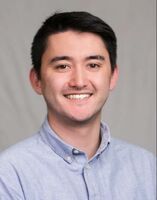
Ashlin earned his Bachelor of Science in psychology at the University of Oregon in 2016. Ashlin is a data analyst at UCSF's Memory and Aging Center for Dr. Virginia Sturm and Dr. David Perry.
Nathan Morris

Nathan is a research coordinator who comes from Marin County. He graduated Stanford in 2018 with a degree in psychology. At Stanford he worked as a research assistant in Dr. James Gross' lab studying the regulation of emotions in groups as well as the emotional dynamics between group members. Since starting work with the lab in July 2018 Nathan has worked with Dr. Virginia Sturm studying the emotional and social dynamics of populations with neurodegenerative and neurodevelopmental diseases.
Christina Veziris

Christina Veziris graduated from the University of San Francisco in 2018 with a bachelor’s degree in Psychology and minors in Neuroscience and Health Studies. She volunteered in the CAN lab for a year and then worked in the Relationships, Emotions, and Health Lab at San Francisco State University for three years using the Facial Action Coding System to code facial emotions. In her last year at USF, she completed an honor’s thesis on the effects of culture on emotion recognition. Christina has been a research coordinator at the MAC since January 2019.
TIFFANY CHOW
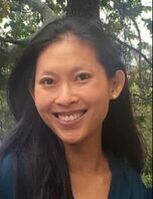
Tiffany Chow joined the CAN Lab as a postdoctoral scholar in 2018. She received her PhD in Cognitive Neuroscience from the University of California, Los Angeles in 2017. Her graduate work assessed the neural correlates of episodic memory retrieval through the use of functional magnetic resonance imaging, transcranial direct current stimulation, and wearable camera technology.
Eleanor Palser
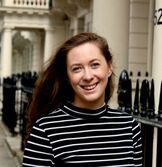
Eleanor Palser joined the CAN lab in December 2018. Eleanor works with UCSF's Dyslexia Center, studying social and emotional processing in neurodevelopmental conditions, such as dyslexia and autism. To do this, she combines self-report, physiological and neuroimaging methods. Previously, she received a PhD in Cognitive Neuroscience from University College London. During her doctoral studies, she investigated the role of afferent bodily signals or "interoception" in several aspects of cognition and emotion, applying this to the clinical features of autism and anxiety.

